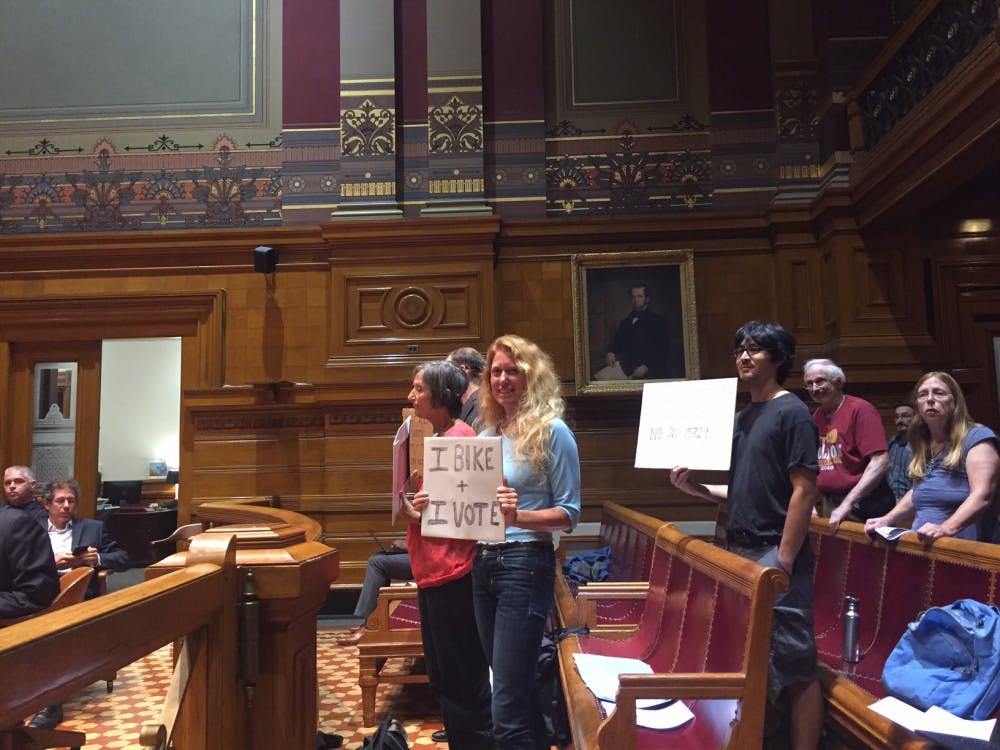At Thursday’s Providence City Council meeting, the city passed resolutions calling for a study of bike lanes as well as the removal of Confederate flags and monuments from public property. Providence’s decision follows similar resolutions passed in other U.S. cities in the wake of violence in Charlottesville over similar monuments this summer.
Councilman David Salvatore, who introduced the monument resolution, said that it would take a position on racism on the right side of history. Many council members thanked Salvatore for raising the issue. Councilman Luis Aponte expressed shock at the events in Charlottesville and noted the importance of removing these symbols, opening up a dialogue and learning from history. The resolution passed unanimously.
After a heated debate, the council also approved a resolution that would require Providence to conduct a full traffic and economic impact study of its bike lanes. The resolution, proposed by Aponte, requests that the City Traffic Engineer, Director of the Department of Public Works and the Parking Administration conduct the study and make it available for public comment prior to deciding whether to construct new bike lanes.
Aponte argued that the addition of bike lanes could produce unintended consequences if the city does not first engage property owners or small businesses in neighborhoods or commercial corridors. He said that constructing bike lanes may cause businesses to lose parking spaces, potentially resulting in customer losses for businesses. “They’ve said to me, “If I lose another parking spot, I might as well shut my company,’” Aponte said.
Councilman Seth Yurdin opposed the resolution, noting the cost and redundancy of an economic impact study. He said the study would pose a barrier to design, and the number of steps involved in the study would stall the process of adding bike lanes. Yurdin also noted that bike lanes fix a public safety problem and urged the city to put its citizens first.
Councilwoman Mary Kay Harris supported the resolution, arguing that the city needs the opportunity to understand the issue and engage everyone. Councilman John Igliozzi echoed her concerns. “Why is this so difficult to make sure committees are engaged? Why is this such a bad thing?”
Members of the Rhode Island Bicycle Coalition also attended the meeting, strongly opposing the biking resolution. Melissa Jenkins, a Brown professor and a member of the RI Bicycle Coalition, said that conducting impact studies for each proposed bike lane is not a standard procedure, but rather creates unnecessary hurdles to building bike lanes.
“The resolution may have passed today, but Mayor (Jorge) Elorza is likely to veto it — he is very bike-friendly,” Jenkins added. She said that the group would continue to fight for the city’s bike lanes.





